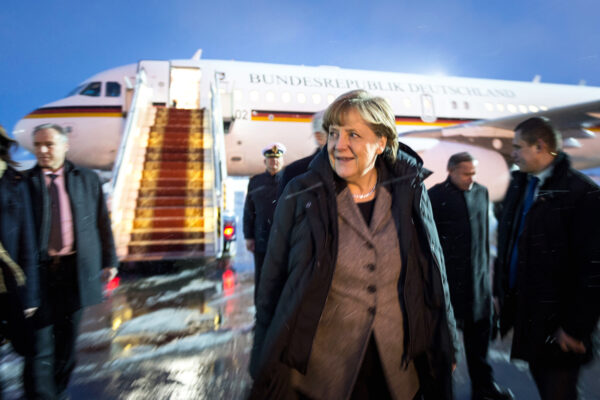
German chancellor Angela Merkel has been in power for almost a decade. During that time, she has presided over Germany’s economic revival (even if that owed much to her predecessor, Gerhard Schröder) and assumed leadership in the European sovereign debt crisis — which saw Germany return to a position of preeminence on the continent.
It’s hard to imagine life without Merkel. But it would be a mistake to think Europe can’t do without her.
A seasoned reporter like Britain’s Philip Stephens should know better than to fear Europe will “unravel” if Merkel loses her job. Surely sixty years of European integration won’t come undone the day Merkel leaves office?
Vulnerable
She is possibly more vulnerable now than at any point in her chancellorship. The normally cautious Merkel got ahead of German public opinion this year by opening the door to as many as one million asylum seekers. The huge influx of people threatens to overwhelm German institutions and towns.
It also threatens to split the bedrock of German political stability: the alliance between Merkel’s Christian Democratic Union and the more socially conservative Christian Social Union in Bavaria.
Stephens is right that Merkel, unlike many of her counterparts in neighboring countries, has so far kept the nationalists and xenophobes at bay. Germany doesn’t have a popular right-wing party resisting immigration — yet. But many in her conservative camp worry that could change if Merkel doesn’t climb down from the moral high ground and starts reducing the immigration numbers.
She probably will. But if she doesn’t, and is deposed, there is little reason to believe that German foreign policy would change dramatically.
“Rock of certainty”
As Stephens puts it, “Merkel has been the rock of certainty — the leader with the authority to keep the show on the road. Without her the fractures would multiply.”
This is a variation on the big-men admiration fallacy this website has warned against.
A society like Germany’s, in which citizens are informed and willing to take responsibility for their own lives, doesn’t need a strong leader. It needs a strong body politic, a strong civil society, capable bureaucrats, accountable politicians and a political system that can channel grievances and settle disputes peacefully.
If a country’s — or a whole continent’s — stability indeed hinges on the ability of one man or one woman, it has a big problem. It means it lacks the institutions to keep it together.
Europe has such institutions aplenty. It’s not Merkel standing between the European Union and the abyss. It’s the Brussels bureaucracy, 28 national governments and countless regional, provincial and local administrations that are increasingly interconnected. Try unweaving that!
After Merkel
Yes, Merkel may eventually be replaced by a more conservative leader, like Ursula von der Leyen, her defense minister, or Wolfgang Schäuble, the hawkish finance minister, who is “consumed by narrower, more immediate calculations of interest,” in Stephens’ words. But that wouldn’t mean “giving up on the ideal of a European Germany.” That notion is so deeply ingrained in the German mindset that it will take generations to unwind.
The Germans are more committed to European unity than most. But they’re not unselfish altogether. There needs to be a balance between the German interest and the European interest. Merkel has stayed in power for so long because she was able to convince voters that what’s good for Europe is good for Germany. As a result of the migrant crisis, the Germans aren’t so sure anymore. That doesn’t mean they’ve given up on Merkel, let alone on Europe. They just want their concerns taken seriously and if Merkel won’t — they’ll find someone who will.
